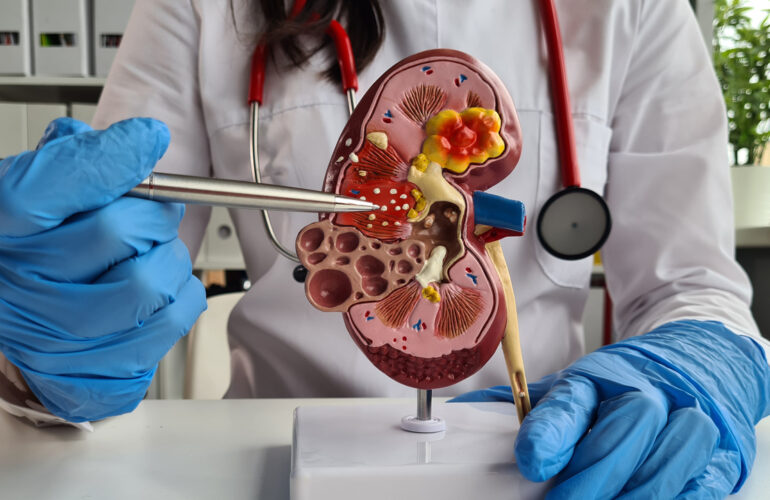Diabetic kidney disease, also known as diabetic nephropathy, is a serious complication of diabetes that affects the kidneys. It occurs when high levels of sugar in the blood cause damage to the small blood vessels in the kidneys, leading to kidney damage and ultimately kidney failure. In this blog post, we will explore diabetic kidney disease in more detail, including its causes, symptoms, and treatment options.
Causes of Diabetic Kidney Disease:
Diabetic kidney disease is caused by long-term exposure to high levels of sugar in the blood, which damages the small blood vessels in the kidneys. This damage leads to a condition called glomerulosclerosis, where the glomeruli (tiny blood vessels that filter waste products from the blood) become scarred and lose their ability to filter blood properly. Over time, this can lead to chronic kidney disease and eventually kidney failure.
Symptoms of Diabetic Kidney Disease:
In the early stages of diabetic kidney disease, there may be no symptoms at all. However, as the disease progresses, the following symptoms may develop:
- Swelling in the ankles and feet
- Increased need to urinate, especially at night
- Fatigue
- Loss of appetite
- Nausea and vomiting
- Itching
- Muscle cramps
- Trouble sleeping
- High blood pressure
Treatment of Diabetic Kidney Disease:
The goal of treatment for diabetic kidney disease is to slow the progression of the disease and prevent or delay kidney failure. This can be achieved through a combination of lifestyle changes, medication, and in some cases, dialysis or kidney transplant.
Lifestyle changes:
- Maintaining a healthy weight through diet and exercise.
- Controlling blood sugar levels by following a diabetic diet and taking medications as prescribed.
- Controlling blood pressure through lifestyle changes and medication.
Medication:
- Angiotensin-converting enzyme (ACE) inhibitors and angiotensin receptor blockers (ARBs) are medications that can help reduce blood pressure and slow the progression of kidney damage in people with diabetic kidney disease.
- Diuretics may be prescribed to reduce swelling.
- Statins may be prescribed to reduce cholesterol levels.
Dialysis and kidney transplant: In severe cases of diabetic kidney disease, dialysis or kidney transplant may be necessary. Dialysis is a treatment that helps remove waste products from the blood when the kidneys are no longer able to do so. A kidney transplant involves replacing a diseased kidney with a healthy one from a donor.
Conclusion:
Diabetic kidney disease is a serious complication of diabetes that can lead to chronic kidney disease and kidney failure. However, with proper treatment and management, it is possible to slow the progression of the disease and prevent or delay kidney failure. If you have diabetes, it is important to monitor your blood sugar levels, control your blood pressure, and have regular check-ups with your doctor to detect any signs of kidney damage early on.






